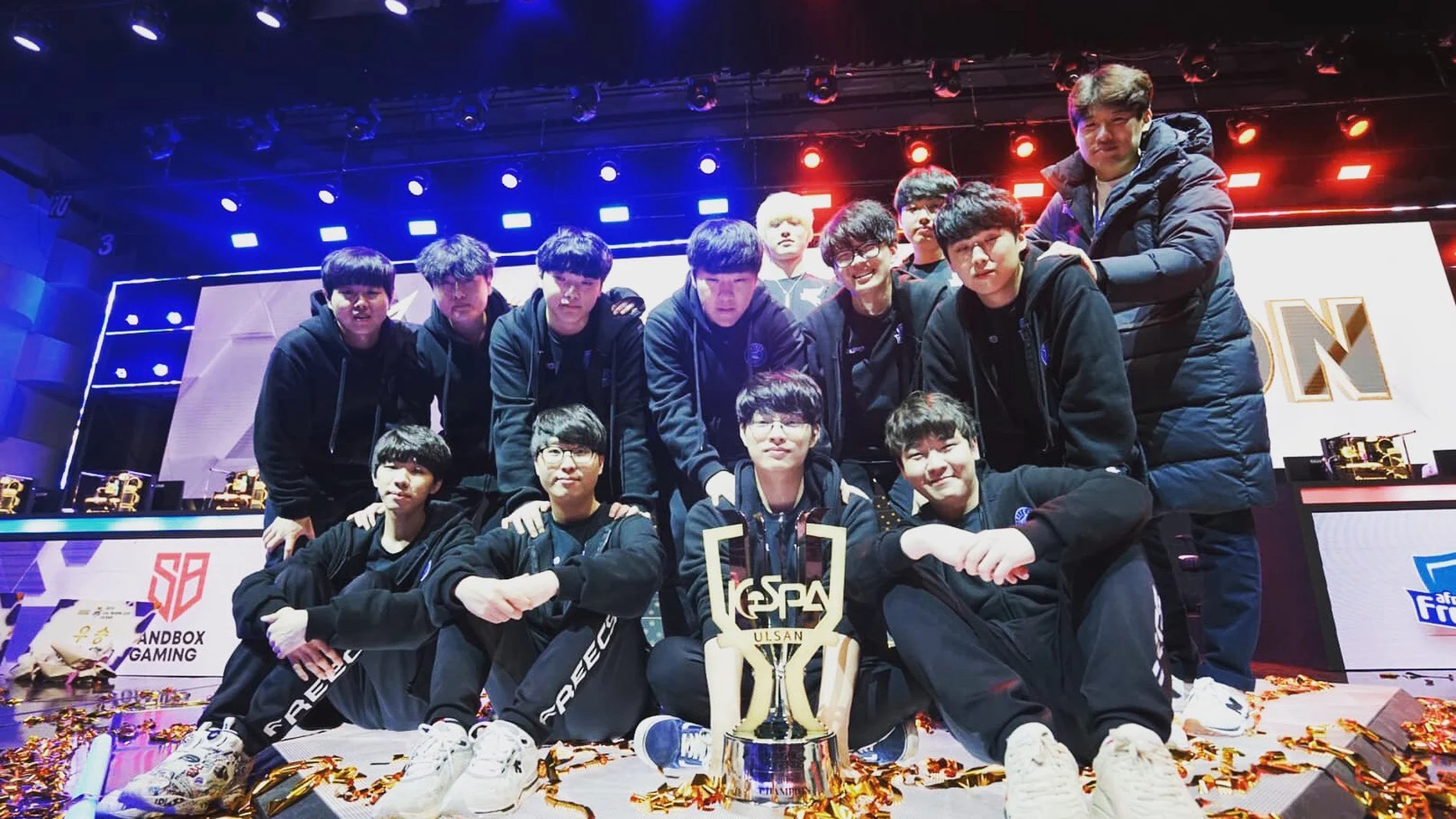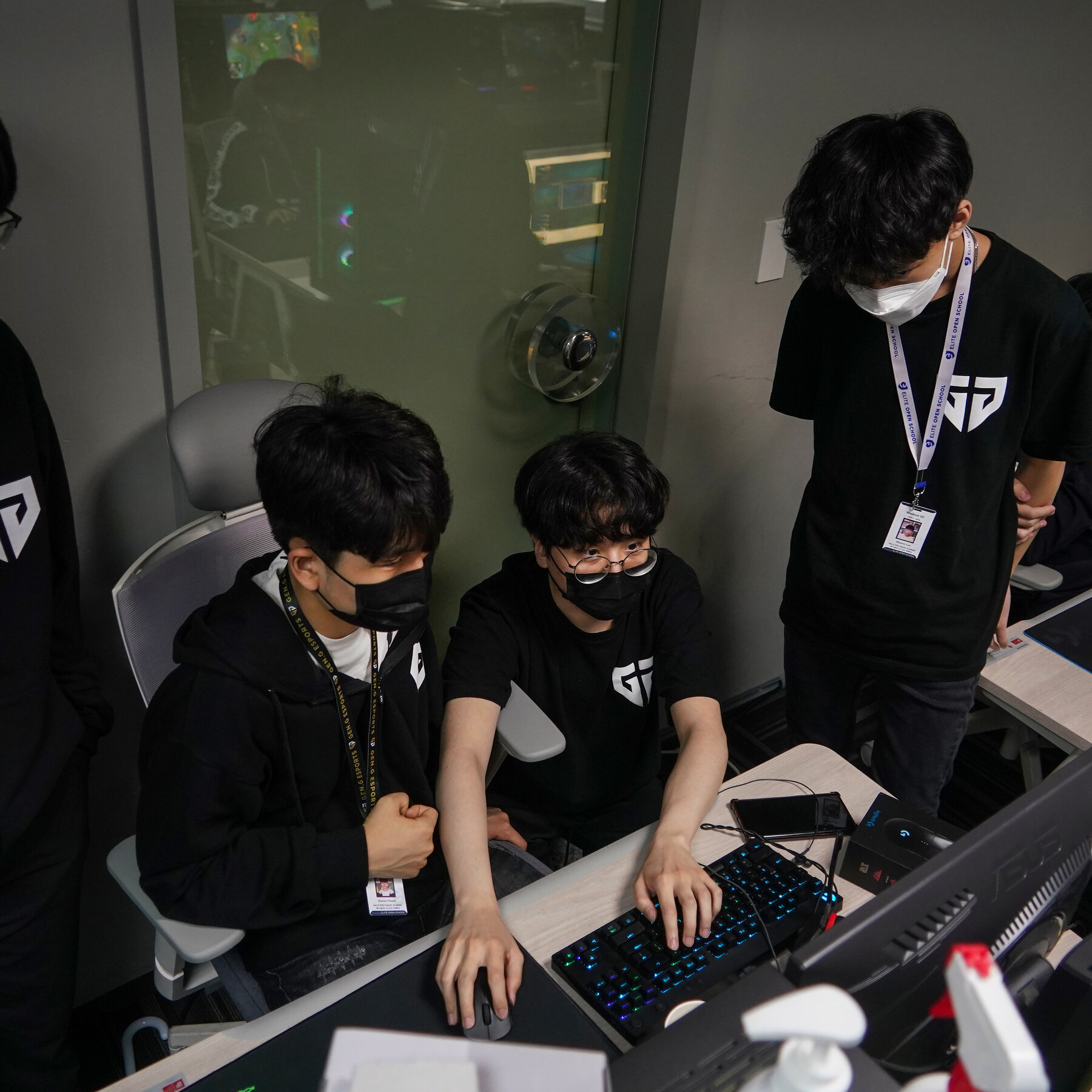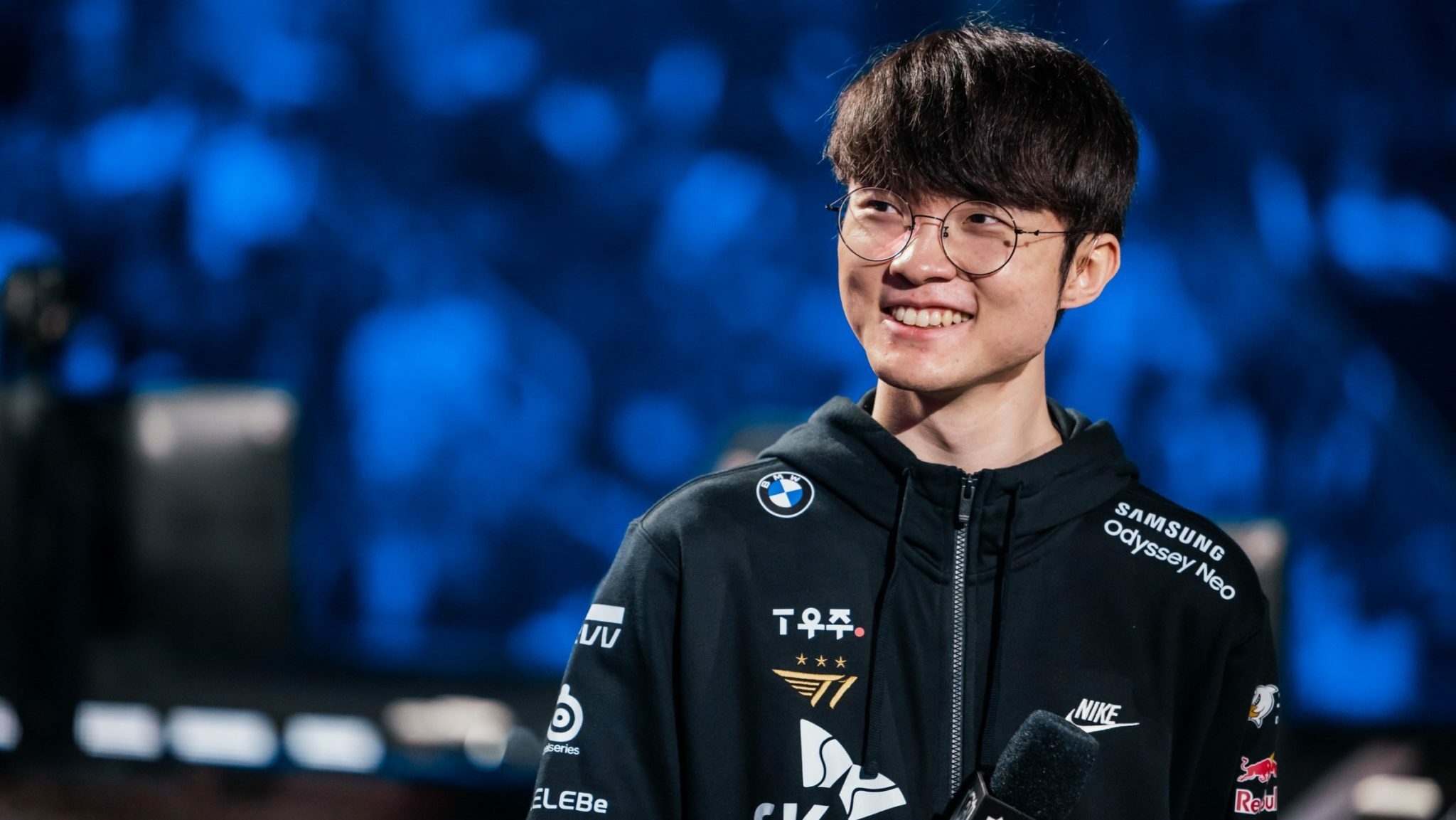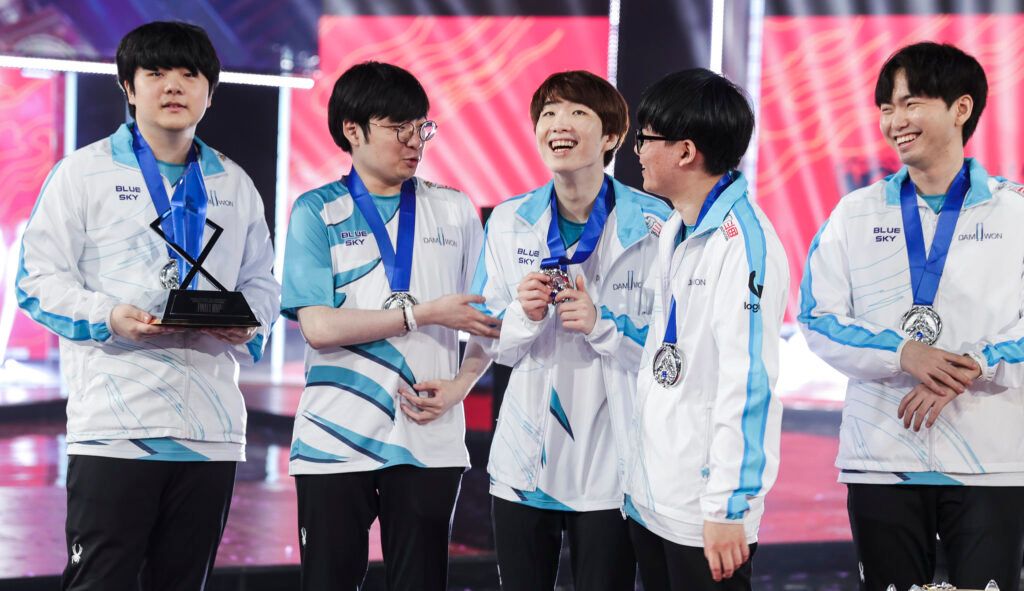Esports In Korea - A Pinnacle Of Competitive Gaming
Esports in Koreahas cemented its status as a global powerhouse in the world of competitive gaming. With a rich history, a passionate fan base, and a thriving industry, Korea stands as a testament to the potential and popularity of esports. In this article, we'll explore the evolution, culture, and impact of Esports in Korea, shedding light on why it continues to be a dominant force on the global stage.
Why Do Koreans Love To Play Computer Games?
The fascination that Koreans have with computer games is deeply rooted in the country's socio-cultural context and the evolution of its society. Understanding this phenomenon requires a closer look at the generational shifts, technological advancements, and cultural factors that have shaped South Korea's affinity for gaming.
Generational Dynamics
Korea's older generation is known for their unrelenting work ethic and sacrifices to provide a better life for their children. This dedication has borne fruit, leading to a younger generation often referred to as the "IT Generation." These young Koreans have grown up in a world where their basic needs are met, allowing them the freedom to pursue activities that bring them joy and satisfaction.
The IT Generation's Pursuit Of Joy
The IT Generation's quest for joy and novelty has made them deeply enamored with new technologies. They are perpetually in search of the next big thing, a quest that gaming fulfills perfectly. The gaming industry is dynamic and ever-evolving, constantly churning out new titles and experiences. This steady stream of innovation resonates with the IT Generation's desire for fresh and exciting pursuits.
Gaming As A Cultural Phenomenon
Gaming has seamlessly integrated into Korean culture. The prevalence of gaming isn't restricted to a specific age group. A simple observation on a Korean subway ride reveals that individuals of all ages are engaged in gaming, particularly on their smartphones. This widespread participation in gaming across generations underscores its universal appeal.
A Respite From The Grind
South Korea's notorious work culture, characterized by long hours and intense pressure, has left little room for leisure. In response, Koreans have sought refuge in gaming as a form of escapism and entertainment. The government's intervention to reduce working hours from 68 to 52 hours per week is a testament to the need for work-life balance.
The night-time culture in Korea is emblematic of this desire for relaxation and enjoyment after a hard day's work. Koreans have developed a penchant for enjoying their evenings, whether through socializing over drinks or engaging in gaming activities at home or during their commutes.
In essence, Koreans' love for computer games is a complex interplay of generational dynamics, a thirst for innovation, and the need for respite from a demanding work culture.
A Brief History Of Esports In Korea
Korea's fascination with video games has deep roots that stretch back to the early days of arcade gaming in the 1980s. Arcades were a vibrant part of Korean youth culture, where aspiring gamers would gather to test their skills on classic titles like Pac-Man and Street Fighter. These arcades served as the breeding grounds for a generation of gamers who would eventually shape the esports landscape.
However, it was in the late '90s that the esports phenomenon truly took off in Korea with the introduction of StarCraft. Developed by Blizzard Entertainment, StarCraft was a real-time strategy (RTS) game that would forever change the course of competitive gaming. The game's unique blend of resource management, strategy, and fast-paced action struck a chord with Korean gamers, and it didn't take long for it to capture the nation's imagination.
The StarCraft Sensation
StarCraft quickly evolved from a popular pastime into a cultural phenomenon. Gamers of all ages and backgrounds found themselves immersed in the epic struggle between the three distinct races: Terran, Zerg, and Protoss. The game's strategic depth and intricate balance made it a perfect platform for competitive play.
The turning point for StarCraft and esports in Korea came with the rise of televised tournaments. Major networks began broadcasting StarCraft competitions, transforming professional gaming into a mainstream form of entertainment. These broadcasts featured expert commentary, player profiles, and nail-biting matches, captivating audiences across the nation.
The Rise Of League Of Legends In Korea
When we talk about the remarkable journey of esports in Korea, one cannot overlook the monumental impact of League of Legends (LoL). Since its release in 2009, LoL has not only redefined the gaming landscape but has also become a symbol of excellence in Korean esports.
Birth Of A Giant
League of Legends, developed by Riot Games, burst onto the gaming scene and quickly garnered a massive following. Its blend of strategic depth, team-based gameplay, and a diverse roster of champions struck a chord with Korean gamers. It wasn't long before LoL tournaments began cropping up, and Korean players and teams ventured into this uncharted territory.
The Korean Dominance
What sets the Korean esports scene apart is its relentless pursuit of excellence, and League of Legends became a platform where this pursuit was magnificently showcased. Korean teams, particularly SK Telecom T1(now known as T1) and Samsung Galaxy, have consistently dominated the international LoL competitive circuit.
T1 - The Epitome Of Success
T1 stands as an iconic name in the realm of esports. Led by legendary players like Lee "Faker" Sang-hyeok, T1's dominance in the League of Legends competitive scene is unparalleled. Their meticulous approach to training, strategy, and player development has set the gold standard for esports organizations worldwide.
Samsung Galaxy - The Rivalry
The rivalry between T1 and Samsung Galaxy added to the lore of Korean League of Legends. These two titans faced off in multiple World Championship finals, creating unforgettable moments for fans. The clash of these giants showcased the depth of talent within the Korean LoL scene.
International Triumphs
Korean teams didn't limit their success to domestic competitions. They ventured onto the international stage with an unyielding determination to establish their supremacy. Korean teams have secured multiple World Championships, showcasing not only their individual skill but also their ability to adapt and outmaneuver their global counterparts.
Impact Beyond The Game
League of Legends in Korea is more than just a game; it's a cultural phenomenon. The success of Korean teams has inspired a new generation of players and fans. Esports arenas are packed with passionate supporters, and LoL matches are a spectacle to behold.
The game has also fueled the growth of esports infrastructure in Korea. Dedicated training facilities, coaching staff, and player support systems have become the norm, raising the bar for professional gaming worldwide.
Infrastructure And Support
Korea's ascent to esports supremacy can be attributed to its robust infrastructure and unwavering support for the industry. The country's investment in state-of-the-art facilities, talent development, and comprehensive ecosystem has positioned Korea as a global leader in competitive gaming.
Cutting-Edge Esports Arenas
Korea's commitment to esports is vividly displayed through its world-class esports arenas. These venues, purpose-built for competitive gaming, are technological marvels that provide the perfect stage for esports events. With seating capacities ranging from hundreds to thousands, they accommodate fervent fans who come to witness their favorite teams and players in action. The atmosphere in these arenas is electrifying, akin to that of traditional sports stadiums.
Nurturing Talent From A Young Age
One of the secrets to Korea's success in esports lies in its talent development programs. Korean esports academies and training facilities are where the future stars of gaming are born. These academies provide a structured environment where young talent can hone their skills, receive coaching, and learn the nuances of competitive gaming.
Many players in Korea begin their esports journey at a very young age, often scouted by these academies. The rigorous training regimens, often likened to those of professional athletes, ensure that players are not only skilled but also mentally and physically prepared for the demanding competitive scene.
Corporate Sponsorships And Financial Backing
Korea's esports industrybenefits immensely from corporate sponsorships and financial investments. Major companies, both domestic and international, recognize the immense potential of esports in reaching a young and engaged audience. As a result, they are eager to sponsor teams, leagues, and events.
These sponsorships provide financial stability for esports organizations, enabling them to invest in player salaries, coaching staff, and state-of-the-art equipment. In turn, this financial backing elevates the overall quality of Korean esports, attracting top-tier talent and fostering a competitive spirit that drives the industry forward.
Streaming Platforms And Media Coverage
The widespread accessibility of esports in Korea owes much to streaming platforms and extensive media coverage. Esports matches are broadcasted live on various streaming platforms, allowing fans to watch their favorite games and players from the comfort of their homes or mobile devices. Streaming platforms have also created opportunities for aspiring streamers to build their own fan bases.
Moreover, Korean media outlets provide extensive coverage of esports events, treating them with the same level of importance as traditional sports. This media attention not only brings esports to a broader audience but also solidifies its status as a mainstream form of entertainment.
Star Players And Legends
Korea's esports legacy is not only built on its infrastructure and industry support but also on the shoulders of legendary players who have left an indelible mark on the competitive gaming world. These iconic figures are celebrated not only in Korea but also globally for their extraordinary skills, dedication, and the inspiration they have provided to countless gamers.
Lee "Faker" Sang-hyeok - The Unrivaled Mid Laner
No discussion about Korean esports legends is complete without mentioning Lee "Faker" Sang-hyeok. Often regarded as the greatest League of Legends player of all time, Faker has achieved unprecedented success and acclaim throughout his career with T1. His exceptional mechanical skill, unflappable composure under pressure, and versatility in playing various champions have made him a living legend in the world of esports.
Faker's legacy extends beyond his remarkable gameplay. He has been a source of inspiration for aspiring players worldwide, proving that hard work, dedication, and a relentless pursuit of improvement can lead to unparalleled success in esports.
Lim "BoxeR" Yo-hwan - The Emperor Of Terran
In the realm of StarCraft, Lim "BoxeR" Yo-hwan is a name etched in history. Known as "The Emperor of Terran," BoxeR was one of the earliest esports superstars and played a pivotal role in popularizing competitive gaming in Korea. His strategic brilliance, charismatic personality, and innovative gameplay tactics set him apart.
BoxeR's influence extends far beyond his time as a player. He transitioned into a successful esports team coach and mentor, contributing to the development of the next generation of gamers and cementing his status as an esports icon.
Jang "MC" Min-chul - The Boss Toss Of StarCraft II
Jang "MC" Min-chul, also known as the "Boss Toss," made a significant impact in the world of StarCraft II. His aggressive Protoss playstyle and entertaining persona earned him a massive fan following. MC's ability to engage and interact with his audience showcased the personal connection that esports players can establish with their fans.
MC's success and charisma have not only made him a beloved figure in Korean esports but also a global ambassador for the sport. His pioneering role in bridging the gap between players and fans has contributed to the fan culture that defines modern esports.
Inspiring Generations Of Gamers
These legendary players, along with many others, have not only achieved unparalleled success but have also inspired generations of gamers. Their stories of determination, resilience, and excellence continue to motivate aspiring players worldwide.
In essence, the star players and legends of Korean esports serve as beacons of inspiration, reminding us that the pursuit of greatness in competitive gaming knows no bounds. As the esports scene continues to evolve, their enduring influence ensures that Korean esports will continue to produce iconic figures who shape the future of gaming.
For more information on South Korea and its vibrant gaming culture, you can explore this family vacation guide to South Korea.
The Global Influence Of Korean Esports
The impact of Korean esports isn't confined to the borders of the Korean Peninsula. Instead, it ripples across the globe, leaving a profound mark on the international esports scene. From strategic innovations to unparalleled skill, Korea's contributions to competitive gaming are felt worldwide.
Shaping Strategies And Gameplay
Korean esports teams have consistently set the standard for strategic brilliance and innovative gameplay. Their meticulous approach to analyzing opponents, drafting strategies, and executing flawless maneuvers has forced teams from other regions to adapt and evolve.
For example, in League of Legends, Korean teams are known for their disciplined macro play and exceptional vision control. Their strategies revolve around teamwork and map control, which have influenced the way the game is played at the highest levels globally. Teams from North America, Europe, and other regions look to Korea for inspiration and seek to replicate their success.
Elevating Standards Of Professionalism
Korea's commitment to professionalism within the esports industry has become a benchmark for organizations worldwide. Korean esports teams operate with a level of discipline and structure that sets them apart. They invest heavily in player development, training facilities, and coaching staff, fostering an environment conducive to success.
This dedication to professionalism has prompted teams and organizations in other regions to adopt similar practices, striving to match the standards set by their Korean counterparts. The global esports ecosystem has become more competitive as a result, with teams from around the world pushing each other to new heights of excellence.
A Global Hub For Esports
Korea's significance in the esports world extends beyond competition. The country serves as a hub for international esports events, drawing teams and players from various continents to compete on Korean soil. These events not only provide a platform for international collaboration but also showcase the nation's continued dedication to esports.
Furthermore, the Korean esports model has inspired the establishment of esports leagues and organizations in other countries. The global esports industry has recognized the importance of developing talent and fostering a structured competitive environment, and Korea's example has played a pivotal role in this realization.
Advancing Esports As A Worldwide Phenomenon
Korea's influence on global esports is a testament to the nation's dedication, passion, and relentless pursuit of excellence. Korean teams and players have elevated esports to a worldwide phenomenon, transcending cultural boundaries and language barriers.
People Also Ask
What Is The Most Popular Esport In Korea?
League of Legends (LoL) stands out as the most popular esport in Korea. It has a massive player base, a dedicated fan following, and a robust competitive scene. Korean teams, such as T1 and DAMWON Gaming, consistently perform well in international LoL tournaments, solidifying its status as the dominant esport in Korea.
Is Esports Profitable In Korea?
Esports is highly profitable in Korea. The country has a well-established esports ecosystem that includes corporate sponsorships, advertising deals, media rights, merchandise sales, and fan engagement. Esports organizations, players, and other stakeholders have the opportunity to generate substantial revenue. Additionally, Korean esports events often draw large audiences and generate significant revenue through ticket sales and broadcasting rights.
Why Are Esports So Popular In Korea?
Esports enjoys immense popularity in Korea for several reasons:
- Historical Roots:Korea has a rich history of gaming, dating back to the early days of arcade gaming. This strong gaming culture laid the foundation for the rise of esports.
- Early Success:The success of games like StarCraft and Warcraft III in Korea, combined with televised tournaments, introduced esports to a broad audience.
- Professionalism:Korea's commitment to professionalism within the esports industry has elevated the quality of play and competition, attracting both players and fans.
- Infrastructure:Korea boasts world-class esports arenas, training facilities, and academies, creating an ideal environment for nurturing talent.
- Cultural Acceptance:Esports has become culturally ingrained in Korea, with fans from all generations actively supporting their favorite teams and players.
- Global Influence:Korean teams and players have made a significant impact on the global esports scene, inspiring others and contributing to the sport's worldwide growth.
Conclusion
Esports in Korea isn't just a form of entertainment; it's a cultural touchstone and a thriving industry. With a rich history, passionate community, and global influence, Korea remains at the forefront of competitive gaming. As the esports landscape evolves, Korea's enduring legacy and commitment to excellence will undoubtedly continue to shine brightly on the global stage.
In summary, esports in Korea is a multifaceted phenomenon that combines history, culture, and competitive excellence. With its storied past and promising future, Korea remains an essential pillar of the esports world.




